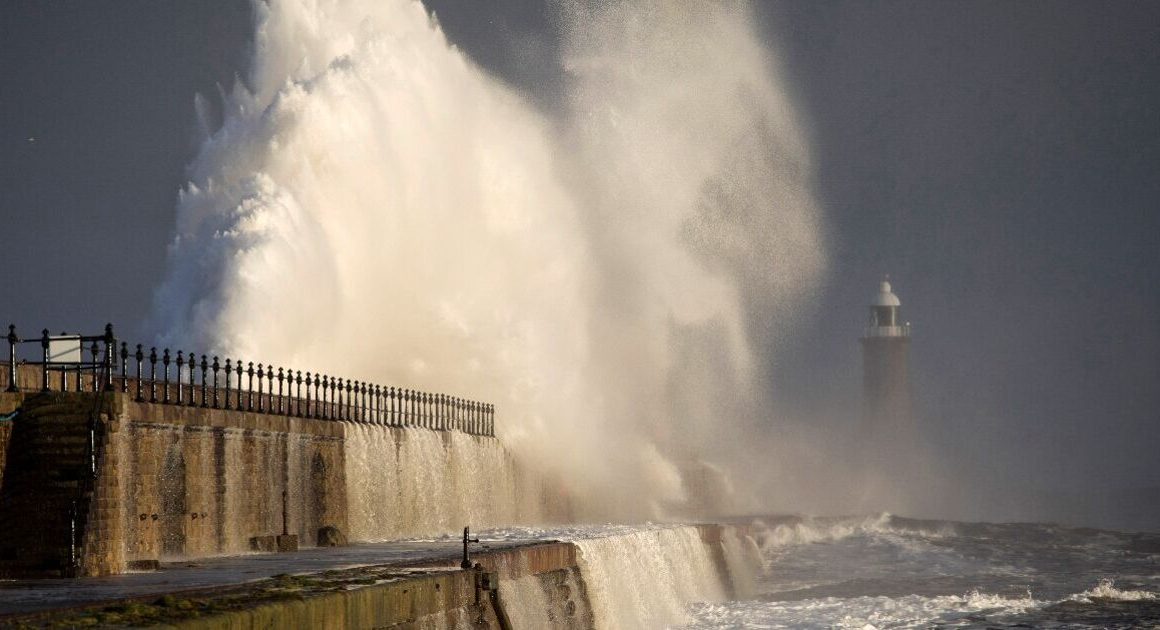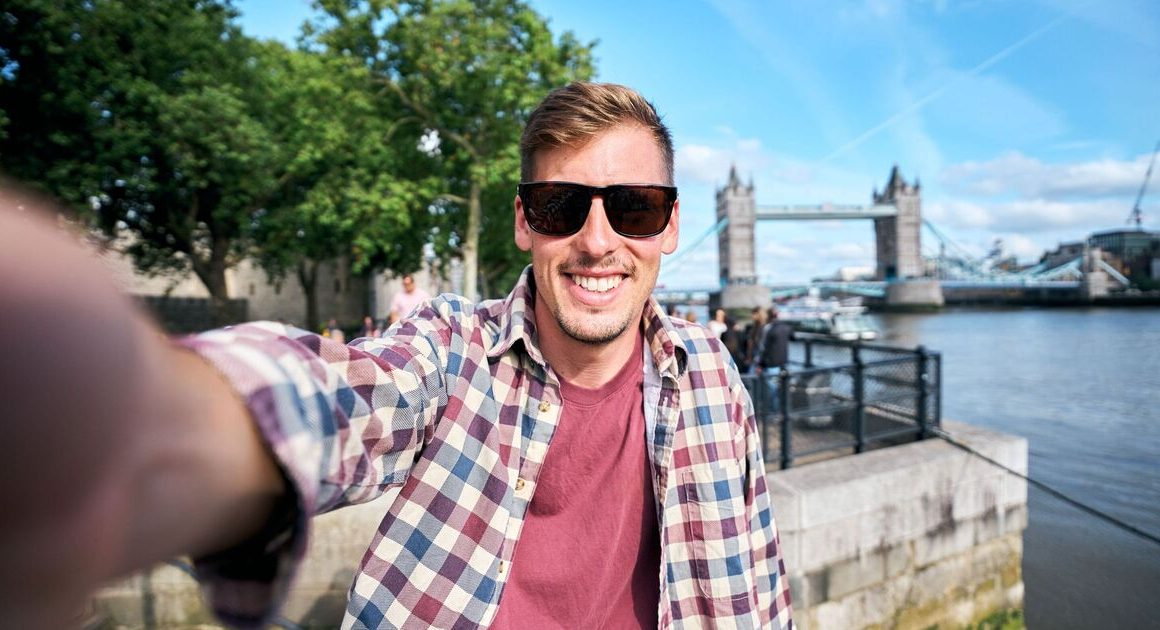
Egypt is one of many popular tourist countries with strict laws. (Image: Getty)
It was a holiday romance that should have provided fuzzy memories for months. Instead, British teenager Marcus Fakana has been sentenced to a year in a Dubai jail for having consensual sex with a 17-year-old British girl while the pair were both in the United Arab Emirates with their parents.
Unlike the UK, where the sexual agent of consent is 16, sex with a person under 18 is illegal in Dubai. And it was the unnamed girl’s mother who reported Marcus to Dubai police upon finding out about the relationship before he was arrested and sentenced for one year in Al-Awir prison, which his lawyers claim is “notorious for human rights abuses and torture”.
Marcus’s family, who knew about the romance, have appealed to Dubai ruler Sheikh Mohammed Al Maktoum to spare the teenager from his jail sentence, but what happens next remains uncertain. Offenders can face imprisonment of up to 20 years, fines, and deportation.
Marcus has said he “never intended to break the law”. But in the United Arab Emirates (UAE), the protection of minors is taken very seriously, not just by the authorities.
And it’s not the only nation with some little-known but ultra-strict laws that can land visitors in trouble.
Here we look at eight countries popular with British tourists, including Japan, Jamaica, and the Philippines, with hidden rules that are seriously enforced.
READ MORE: The world’s 20 ‘most powerful passports’ – full list and where UK ranks

The UAE has several binding strict laws that tourists must follow. (Image: Getty)
United Arab Emirates (UAE)
The UAE has several binding strict laws that tourists must follow. Using a VPN (virtual private network) to bypass restricted online sites is illegal.
So too is swearing or making rude gestures which are considered “obsene acts” and result in a jail sentence or deportation.
Suicide has historically been illegal in the UAE but it was decriminalised in 2020. Yet in July, Irish woman Tori Towey was detained in Dubai after being charged with attempted suicide and consuming alcohol, after alleging domestic abuse at the hands of her ex-husband. Following a public appeal, all charges were dropped and she flew home to Dublin soon after.

Singapore has strict rules that visitors might find bizarre. (Image: Getty)
Singapore
Singapore has strict rules that visitors might find bizarre. In the city-state, a person can be fined $1,000 for walking naked in their house, playing a musical instrument or spitting in public.
Singing in public can also lead to imprisonment and fines. The list of offences also includes pigeon feeding, which may result in a penalty of $500.
Connecting to someone’s WiFi without their permission can lead to fines of up to $10,000 for the first offence or even three months in prison.
There are also many different fines and prison sentences for littering, using e-cigarettes, public smoking, eating and drinking on public transport, importing or selling chewing gum, drinking in public after 10.30pm, and not flushing public toilets.
It is also illegal for same-sex couples to get married in Singapore, and those who do could face around two years in jail.
Some more serious offences are also punishable by judicial caning. During judicial caning, perpetrators are tied to a wooden tawse. They’re then struck with a 1.5m rattan cane between three and 24 times across the buttocks.
However, women and men over 50 are exempt from this and will face a prison sentence instead.

People have been fined or imprisoned for all manner of things in Saudi Arabia. (Image: Getty)
Saudi Arabia
People have been fined or imprisoned for all manner of things in Saudi Arabia: possessing homemade wine, attempted witchcraft and sorcery, celebrating their birthday, taking pictures of buildings or palaces, and being linked to the LGBTQ+ community.
Saudi Arabia is also the only country in the world to still sentence people to death by beheading.
According to one report, an average of 129 executions were carried out each year between 2015 and 2022. In 2022, 147 people were executed, with 90 being for nonviolent crimes and 81 being killed in a single day.
Women also face tight control in Saudi Arabia. They must wear full-length abayas – a long coat worn over other clothes – in public.
Male guardians must give women permission to marry, divorce, get an abortion, seek important medical treatment, and open a bank account.
The country’s media is also closely monitored, and anyone publishing or broadcasting anything negative about the government can be arrested.

Tokyo in Japan. (Image: Getty)
Japan
According to the British government, it is illegal to carry some common prescription and over-the-counter medicines under Japan’s strictly enforced law on anti-stimulant drugs.
This includes Vicks inhalers, medicines for allergies and sinus problems, cold and flu medication containing pseudoephedrine, and over-the-counter painkillers containing codeine. Foreign nationals have been detained and deported for these offences.
Moreover, the Associated Kyoto Program warned that those who have prohibited medications in Japan risk arrest and imprisonment, even if they hold a foreign prescription.
Japanese customs officials have detained travellers carrying prohibited items, sometimes for several weeks. Visitors must also be careful because Japanese customs officials do not make on-the-spot “humanitarian” exceptions for medicines prohibited in Japan.

Swearing in public has been illegal in Jamaica since 1843. (Image: Getty)
Jamaica
Swearing in public has been illegal in Jamaica since 1843, and the “bad word law” is still enforced today. If a visitor swears or sings a song with profanity in Jamaica, they could receive a $1,500 fine or up to 30 days in jail.
Jamaica isn’t the only Caribbean country that likes to keep its language clean. Rapper 50 Cent was once arrested in St Kitts for using profanity onstage during a concert.
Jamaican law also prohibits sexual acts between individuals of the same sex. Those convicted can face sentences of up to 10 years in prison, though authorities rarely enforce the law. However, there are continued reports of serious discrimination and abuse against LGBTQ+ individuals.
Public nudity and swearing are also illegal, as is selling or wearing camouflage-style clothing.

Shanghai, China. (Image: Getty)
China
There are many things that are illegal in China. For example, it is a crime to instil Western thoughts and influences in the minds of the Chinese youth.
It’s also illegal to produce, sell, distribute, or possess pornographic materials, including books, movies, and pictures. The punishment for violating these laws is 15 days in detention and a fine of up to 3,000 yuan (£324).
China is the world’s leading country in its use of the death penalty, with 24 violent crimes and 22 non-violent crimes (including embezzlement and bribery) punishable by death.
Most executions are carried out by shooting or lethal injection. Media and internet access are also controlled, with many websites, including Google, Facebook, and YouTube, being blocked. Anti-government propaganda is traced, and those responsible are silenced.
As well as its well-known policies on internet censorship and capital punishment, China also enforces some surprising laws aimed at preserving culture and social order. For example, it is illegal to promote time travel in movies and TV shows to prevent distortion of history and culture.
Owning more than one dog is also illegal in an attempt to reduce the number of stray dogs on the streets. And publishing information about ghosts is banned to discourage superstitions and promote scientific knowledge.

Snake Island, Philippines. (Image: Getty)
Philippines
If you’re accused of a crime in the Philippines, authorities may not let you leave the country until investigations and legal proceedings are finished. These can take a long time, sometimes years.
Visitors should never use or carry illegal drugs because penalties are severe and police will strictly enforce drug laws.
Mandatory sentences are common for possessing small amounts of drugs and may include life imprisonment. Local laws also don’t protect LGBTQ+ rights, so tourists are advised to consider avoiding public displays of affection.
There is also the strange Anti-Singit Law, designed to stop people from pushing in front of others in lines. In the Philippines, this is considered an offence and may result in someone being imprisoned for up to 30 days or fined up to 5,000 pesos (£66).

Egypt is popular with British tourists. (Image: Getty)
Egypt
Adultery is a crime in Egypt, and anyone cheating on their spouse can be punished. However, your punishment depends on whether you’re a man or a woman.
A wife is penalised for up to two years in prison for adultery, while a husband is penalised for up to six months. The husband can also avoid punishment if he abdicates and stalls the execution of the judgment.
Same-sex sexual activity between men is also a crime, with a maximum penalty of three years in prison and a fine. LGBT+ people in Egypt are regularly subjected to discrimination and violence.
Furthermore, there’s an important rule for anyone planning to get married in Egypt.
The Ministerial Regulation No. 9200 of 2015 requires payment of approximately $6,400 if the bride is 25 years or younger than her intended husband.












